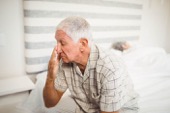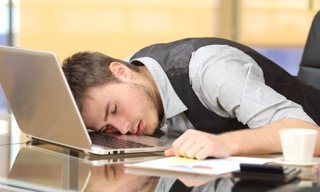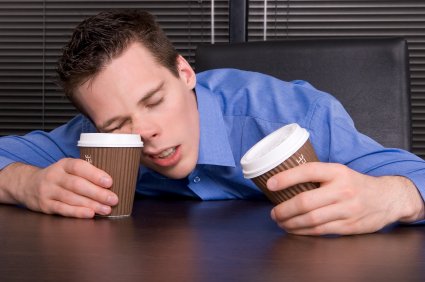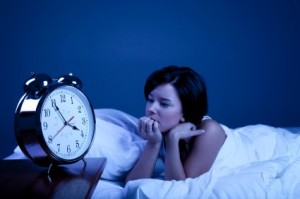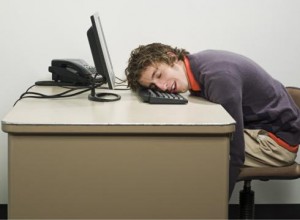Posts Tagged ‘Insomnia’
Sleep – Good Sleep Hygiene and Common Sleep Disorders. By Our Student Pharmacist, Madeline VanLoon.
Why do we sleep?
If the average person sleeps for approximately eight hours every night, it can be predicted that they will sleep for one-third of their life. This is time well spent, however. Sleep is essential for maintaining good health and prolonging life.
On an average night, we will cycle through different stages of sleep. Stages consist of Rapid Eye Movement (REM) sleep, and four non-REM stages of sleep. The deeper stages of sleep are restorative and critical for learning.
What happens when we don’t sleep?
Sleep deprivation can lead to:
- fatigue
- depression
- difficulty learning new things
- high blood pressure
- high blood sugar
- cardiovascular disease
- obesity
- infections
Sleep deprivation can even shorten your overall lifespan. Daytime sleepiness can make you less productive, and also can be dangerous while driving or carrying out other daily tasks.
Good Sleep Hygiene
The best way to improve your sleep is to make sure that you are using “good sleep hygiene,” which is basically a set of good habits that prepare your body for a good night’s rest. The Centers for Disease Control and Prevention (CDC) recommends the following best practices:
-
Go to bed at the same time every night, including on the weekends.
-
Make sure your bedroom is quiet, dark, relaxing, and at a comfortable temperature.
-
Remove electronic devices such as TVs, computers, and smartphones from the bedroom.
-
Avoid large meals, caffeine, and alcohol before bedtime.
-
Increase your exercise. Being physically active during the day can help you fall asleep more easily at night.
Sleep Disorders – Insomnia
Insomnia is defined as a dissatisfaction with sleep quantity or quality, complaints of poor daytime functioning, and at least one of the following: difficulty falling asleep, difficulty staying asleep, or waking up early in the morning with the inability to return to sleep. These conditions must occur at least three nights per week, for at least three months, despite good sleep hygiene and no known other causes. Certain medications and medical conditions can cause insomnia.
Treating insomnia
-
First, resolve any underlying causes for insomnia.
-
Next, use non-drug treatment options, including good sleep hygiene.
-
Talk to your doctor or pharmacist about over-the-counter sleep aids.
-
NOTE: Data shows that medications to help insomnia are only modestly helpful, and may carry more risks than benefits. Be cautious while taking these medications.
Caution
-
Avoid using alcohol to help you sleep – it may fragment your sleep, and chronic use may lead to dependence.
-
Avoid antihistamines such as diphenhydramine (Benadryl) and doxylamine (Unisom) if you are over 65. You may be more susceptible to dry mouth, confusion, constipation, dizziness, and fatigue.
-
Avoid long term use of antihistamines to sleep – tolerance may develop in 4-7 days of daily use, and may not continue working for you after that.
-
Melatonin may help regulate circadian rhythm, but it is not FDA regulated.
Sleep Disorders – Obstructive Sleep Apnea
Obstructive sleep apnea (OSA) is a condition where breathing while sleeping is stopped periodically throughout the night due to a blockage in the upper airway. This condition results in an extensive list of daytime and nighttime symptoms, including:
Daytime Symptoms of OSA:
-
Sleepiness
-
Fatigue
-
Aches
-
Dry mouth
-
Nasal congestion
-
Depression
-
Erectile dysfunction
-
Cognitive impairment
Nighttime Symptoms of OSA:
-
Disrupted sleep
-
Loud snoring
-
Snorts and gasps
-
Frequent awakenings
-
Increased nighttime urination
While these are all uncomfortable symptoms, the most concerning consequence of OSA is the risk of heart problems like heart failure and irregular heartbeat.
Risk Factors for OSA
If you have three of the following eight risk factors for OSA, you may be at high risk for developing the condition:
-
Snoring
-
Tired
-
Observed while breathing stopped
-
High blood pressure
-
BMI greater than or equal to 35
-
Age over 50
-
Neck circumference (distance around neck) greater than 40 cm
-
Male gender
Treatment for OSA
The best treatment for OSA is using a Continuous Positive Airway Pressure (CPAP) machine every night. The machine allows the airway to remain open, allowing for consistent breathing throughout the night, and is superior to treatment with medications. If you believe you are experiencing OSA, talk to your doctor about treatment options.
References:
CPAP side effects. Sleep Association. https://www.sleepassociation.org. Accessed June 22, 2020.
Explain that insomnia meds are only modestly effective. Pharmacist’s Letter. 2020. https://pharmacist.therapeuticresearch.com. Accessed June 23, 2020.
Management of obstructive sleep apnea in adults. UpToDate. Wolters Kluwer. Available at https://www.uptodate.com. Accessed June 22, 2020.
Obstructive sleep apnea and cardiovascular disease in adults. UpToDate. Wolters Kluwer. Available at https://www.uptodate.com. Accessed June 22, 2020.
Pathophysiology of obstructive sleep apnea in adults. UpToDate. Wolters Kluwer. Available at https://www.uptodate.com. Accessed June 22, 2020.
Sleep and sleep disorders: tips for better sleep. Centers for Disease Control and Prevention. https://www.cdc.gov/sleep/. Accessed June 22, 2020.
Sleep Apnea Information Page. National Institute for Neurologic Disorders and Stroke. https://www.ninds.nih.gov/Disorders/All-Disorders/Sleep-Apnea-Information-Page. Accessed June 22, 2020.
Images:
Get a Good Night’s Sleep. By Our September Student Pharmacist, Chris Santos.
Can you remember the last time you had a great night of sleep?
If you can’t, you are not alone.
The Centers for Disease Control and Prevention (CDC) states, from a 2016 study, that more than a third of American adults are not getting enough sleep. A lack of sleep is associated with increasing your risk for obesity, diabetes, high blood pressure, stroke, and frequent mental distress. Insufficient sleep is linked to depression, suicide, and risk-taking behaviors.
The American Academy of Sleep Medicine recommends sleeping for these hours considering your age:
Insomnia is a medical condition described as unsatisfactory sleep that impacts daytime functioning AND causes difficulty initiating or maintaining sleep. Insomnia can be caused by medical disorders, medications, work shifts, life stressors, anxiety, and poor sleeping habits.
Before considering over-the-counter (OTC) medications to help improve your sleep insomnia, we recommend improving sleeping habits and sleep hygiene first.
Improve sleep hygiene:
- Keep a routine of sleep/wake times.
- Create a good sleep environment (cool, dark, quiet bedroom with good bedding and, sadly, no pets–which is very hard for some people to limit their pets’ access to the bed).
- Stop caffeine, nicotine, and alcohol in the evening.
- Exercise within 2-3 hours before bedtime.
- Adjust eating and drinking times.
Sleep habits:
- We recommend leaving the bedroom to engage in quiet activities and returning when sleepy. If you cannot to fall asleep within 15-20 minutes of going to bed, get back up and don’t force yourself to try to fall asleep.
- It is a good idea to avoid electronic device usage one hour before your planned bedtime and limit the bedroom for sleep only.
Over-the-counter options for treating insomnia include diphendydramine, doxylamine, and melatonin.
Diphenhydramine:
- Indicated: for individuals 12 years and older (unless directed by your physician).
- Offers relief of occasional sleeplessness.
- Dosing: 50 mg of capsule, tablet, or liquid form once daily before bed.
- Side effects: dry mouth, nose, eyes, as well as blurry vision, urinary hesitancy, and constipation.
- Not recommend: Age >65, see your primary care physician.
We recommend diphenhydramine to be limited to no more than a 10-day use (unless directed by your primary care physician). Try diphenhydramine for 2-3 days, than take one night “off” to see if the symptoms have resolved.
Doxylamine:
- Indicated: for individuals 12 years and older (unless directed by your physician).
- Offers relief of occasional sleeplessness.
- Dosing: 25mg once daily 30 minutes before bed.
- Side effects: dry mouth, nose, eyes, as well as blurry vision, urinary hesitancy, and constipation.
- Not recommended: Age>65, see your primary care physician.
We recommend doxylamine to be limited to no more than a 10-day use (unless directed by your primary care physician). Try doxylamine for 2-3 days, than take one night “off” to see if the symptoms resolved.
Use caution with combination products labeled “PM,” as these most likely contain diphenhydramine or doxylamine.
Melatonin:
- Indicated: for individuals 12 years and older (unless directed by your physician).
- Offers relief of occasional sleeplessness.
- Dosing: 3-5 mg given 3 to 4 hours before bedtime.
- Side effects: fatigue, dizziness, headache, irritability.
Melatonin is also approved for jet lag—a sleeping disorder caused by traveling between multiple time zones quickly.
Skip over-the-counter self-treatment options and see a primary care physician if you are experiencing:
- Chronic insomnia (defined as greater than three weeks).
- Frequent nocturnal awakenings.
- Insomnia due to psychiatric or medical disorders.
- No improvement or continued symptoms after ten days of self-care.
References:
http://techland.time.com/2011/03/07/need-a-good-nights-sleep-turn-off-your-devices/
https://www.cdc.gov/media/releases/2016/p0215-enough-sleep.html
http://www.sleephealthjournal.org/article/S2352-7218%2815%2900015-7/fulltext
https://www.nhlbi.nih.gov/health/health-topics/topics/sdd/why
image: https://www.cbsnews.com/news/cant-sleep-cognitive-behavior-therapy-may-help-insomnia/
image: https://www.helpguide.org/home-pages/sleep.htm
image: https://www.helpguide.org/home-pages/sleep.htm
Insomnia. By Our January Student Pharmacist, Zach Rawn, Who is Exhausted After This Month Long Rotation!
What is insomnia?
Insomnia is defined as having problems with sleep. This can be problems falling asleep, staying asleep, and/or not feeling well rested upon awakening. Insomnia isn’t necessarily related to how many hours of sleep one gets and everyone needs a different quantity of sleep.
What are some symptoms?
- Difficulty falling asleep and/or staying asleep.
- Feeling sleepy or tired during the daylight hours.
- Difficulty thinking clearly or being forgetful.
- Getting anxious, irritable, or depressed.
- Having less energy and/or interest in doing things.
- Making mistakes more easily than normal.
- Having anxiety about lack of sleep.
These symptoms can affect quality of life and can occur in people who seem to get enough hours of sleep.
Are there any tests I should get?
Your primary care provider might not need to give you a test to diagnose insomnia.
Some of the tests your physician may choose, however, include:
- Polysomnography – A test that usually occurs over one night within a sleep lab. Movement, brain activity, and breathing are recorded.
- Actigraphy – A test that records movements/activities with a motion detector and monitor that is on the wrist. The test is done over a few days and nights at home.
Lifestyle modifications to improve insomnia:
- Sleep only just long enough to feel rested and no more.
- Go to sleep and awake at the same time each day
- If you cannot fall asleep in a reasonable amount of time, get out of bed and attempt to fall asleep a bit later.
- Do not intake caffeine late in the day or in the evening.
- Avoid using tobacco products if possible, especially late in the day or in the evening.
- Keep the room in which you sleep dark, quiet, cool, and without any reminders of stress.
- Solve problems and tie up loose ends before you head to bed instead of leaving them for the morning.
- Increase the amount of exercise/physical activity you do, but not before bed.
- Try to not look at phones, tablets, reading devices, computer screens, etc. before bed.
If I think I may suffer from insomnia should I seek help?
Yes, if you believe you either have insomnia or believe that it is affecting your quality of life, mention it to your primary care provider. He/she might be able to help or at least answer some questions you might have.
Self medicating with a small amount of alcohol may help you fall asleep, but disrupts deep sleep and is not advised long term. There are other over-the-counter (OTC) and prescription medications that may be beneficial in helping you with sleep or to treat an underlying condition. Once again, seek help for a proper diagnosis.
Insomnia. By Our Worn Out Student Pharmacist, David Brokaw.
Sleep. That blissful third of my life of which I have absolutely no memory. Did you know that our brains secrete neurotransmitters to paralyze our bodies so that we don’t act out our dreams1? The more I think about sleeping, dreaming, and the brain, the more I am fascinated by how we work, brain-wise. But what can we do when our brain isn’t able to follow its own instructions to settle down and get to sleep?
That brings us to my topic for today: insomnia.
Insomnia ranks third behind headaches and the common cold for what ails us. Adults need eight or more hours of sleep a night, but, on average, 6.9 hours is all that we get. And, as we age, this problem becomes more and more common. In 2005, 11% of adults managed insomnia with the help of alcohol, 9% used an over-the-counter sleep aid, and 7% used a prescription medicine for sleep.2
Sometimes, when I get stressed over a big deadline, I have trouble sleeping for a few days. But when the stressful day has passed, my sleep pattern returns to normal. This is transient insomnia.
There are also two other insomnia patterns. Short-term insomnia can last 1-3 weeks. Additionally, there is chronic insomnia, lasting more than 3 weeks. The latter is often a secondary problem of another medical condition, psychiatric disorder, or substance abuse. Problems with sleep could be caused, for example, by sleep apnea, diabetes, heartburn, heart disease, high blood pressure, asthma, chronic pain, anxiety/depression, and stimulant use, like caffeine or smoking. People with medical problems should seek treatment for the underlying medical condition first, which may improve their ability to sleep.
One or more of these strategies could help you wrestle with your particular insomnia demon:
Good sleep hygiene: 1. Avoid large meals later in the evening.
2. Avoid exercise 2-4 hours before bedtime.
3. Dim the lights, lower the volume on the television or radio, and relax.
4. Regulate the temperature in your bedroom to a comfortable level.
5. Avoid caffeine and smoking 4-6 hours before bed.
6. Avoid alcohol, which may help you feel drowsy, but can cause increased nighttime awakenings and bathroom visits.
7. Go to bed at the same time each night and rise at the same time each day.
8. Avoid napping during the day.
Underlying medical condition: Ask your physician if your insomnia could be related to a medical condition or a current medication. Seek treatment if your sleep loss is negatively affecting your day-to-day functioning. Sleep apnea is a common breathing problem and an often underdiagnosed cause of insomnia.
Prescription options: Medications called ‘hypnotics’ are available for short term use for insomnia (e.g., Valium, Ambien, Lunesta, Sonata). They are modestly effective in helping you fall asleep and stay asleep, giving you 10-30 minutes more sleep on average for up to 6 months. However, some of these medications can have addictive qualities and could be harmful if used in the long term. Long term use has been compared to smoking in both the increased risk of mortality and cancer3. As we get older, too, these medications are even more risky if used on a long term basis4. This is a discussion best had with your doctor.
Complementary therapy: Melatonin has limited empirical evidence, but on a 0.3-0.5 mg starting dose one hour before bedtime, this supplement may help you fall asleep in the short-term only (jet-lag). Do not use melatonin in pregnancy.
5-hydroxytryptophan or 5-HTP, for short, is a supplement that should be avoided, because it has no proven efficacy and is potentially harmful. I wouldn’t risk it.
Other herbal products are equally unproven with limited safety data (valerian, kava, chamomile, ginseng, lavender, hops, lemon balm, passionflower.) Acupuncture, tai chi, and light therapy may help, but, again, no studies have confirmed any benefit.
Over-the-counter options: Benadryl (diphenhydramine) is the ingredient in “PM” products, sometimes labeled as “sleep aids”. Benadryl is an antihistamine widely used to induce sleep, but may cause “morning after” effects (hard to get moving, a feeling of being tired) in some individuals. The usual dose is 50 mg, but some people use 25 mg, 30-60 minutes before bedtime. Do not use Benadryl for more than 2-3 consecutive nights without taking ‘time off’ from the medication to re-assess improvement in your sleep pattern. Benadryl, plus a pain reliever (Tylenol PM, Advil PM), can help if insomnia is accompanied by mild pain.
Best option (in my opinion): Daily exercise – it’s good for you and it helps you sleep better, feel better, think better, and live longer!
I think I just put myself to sleep…..
References:
- http://www.jneurosci.org/content/32/29/9785.full.pdf+html?sid=8ac6964b-8a2c-4fa7-aec3-cbbc6bc880f2.
- 2005 National Sleep Foundation survey.
- http://www.huffingtonpost.com/jerry-siegel/are-sleeping-pills-good-f_b_446804.html
- http://www.ncbi.nlm.nih.gov/pubmed/22371848







